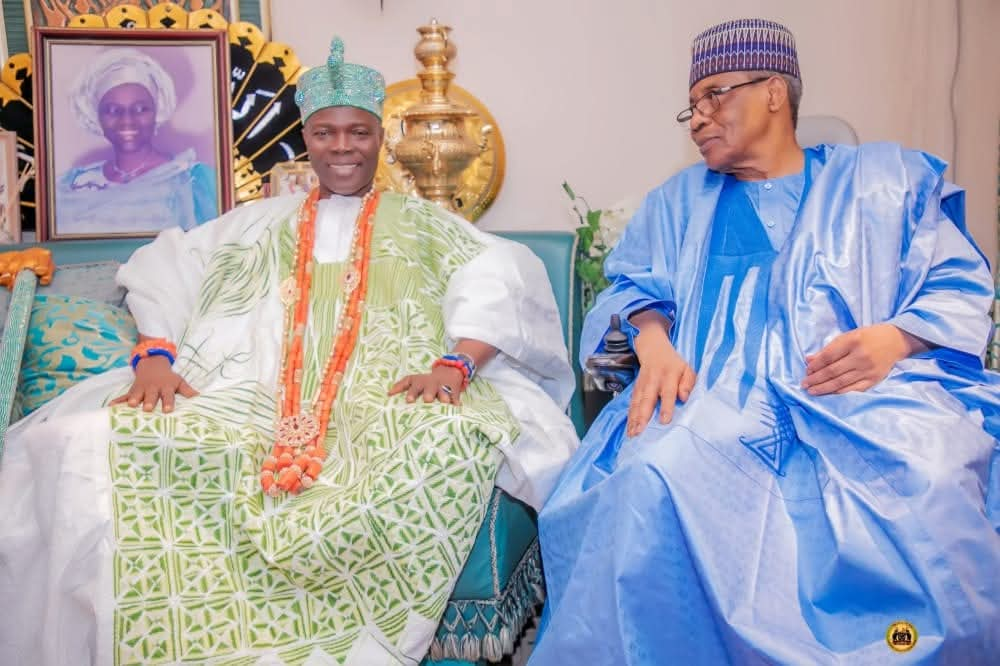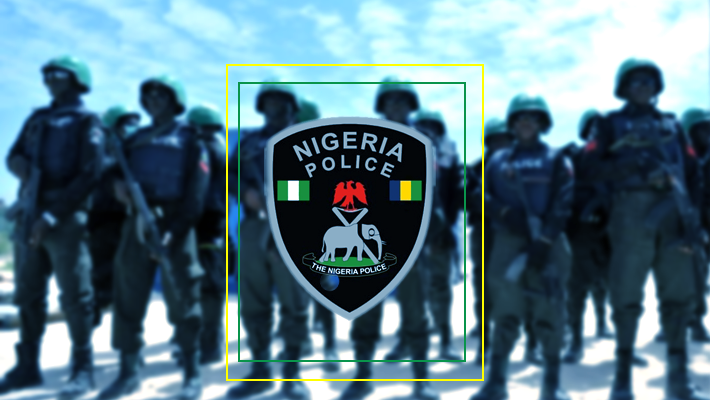Gaining immortality through excellent leadership
[ad_1]
The Ibrahim Prize for Achievement in African Leadership was set up in 2007 by Mr Mo Ibrahim, founder of Celtel International and Mo Ibrahim Foundation, to recognize and celebrate African leaders who have developed their countries, lifted people out of poverty and paved the way for sustainable and equitable prosperity. This is Mo Ibrahim Foundation’s way of rewarding leadership excellence in Africa. The prize, which comes with a cash reward of $5million and a $200,000 a year for life, is enough to stimulate interest in the continent’s political office holders to lead well. However, since 2007 when the first prize went to Mr Joaquim Chissano, former president of Mozambique, only five other winners have emerged in a period of 14 years. That means in eight different years, no political leader was considered fit for the honour across the continent.
Is the motivation for leading well so low that many are not bothered how they lead? Is it easier to be a bad leader than a good one? Is it easier to fail in leadership than to succeed? Is it more fashionable to be a mediocre leader than an excellent one? Are there benefits for leading well?
Foundation for excellent leadership
Many people make a shipwreck of their leadership because they fail to understand the purpose of leadership. Leadership is not for the benefit of the leader, it is primarily for the improvement of the institution and the people he leads. When a leader operates on the warped belief that he is the first and major beneficiary of his leadership, he leads amiss; he uses the people and abuses the system. Consequently, he ends up destroying the people and the system he was put in place to build. When a leader understands the purpose of his position, he uses the position to enrich and nourish those who work with him and strengthen the organization he runs. So, leading well starts with understanding the purpose of leadership.
Mrs Theresa May became British Prime Minister on July 13, 2016, following the decision of British citizens to exit European Union. Former PM, David Cameron, who had campaigned for the country to remain in the regional body, felt he had to leave for another leader to take the country out of EU thus paving the way for the emergence of Mrs May.
On January 17, 2017, about six months after her assumption of office, PM May addressed the country highlighting the steps she would take to lead Britain out of the EU by March 31, 2019. At this point, she had most of the people behind her but her vacillation, indecision, politicization and personalization of national matters turned the people against her and her party. This weakened her administration. So weak was the Conservative Party under May’s leadership that Brexit Party, a party that was founded only in January of 2019, worsted May’s party in the European Parliament elections held between May 23 and 26 of that year.
Then in droves, key members of her cabinet began to resign and the handwriting became clear to Mrs Theresa May that she had lost control of the government and she offered to resign.
What was Mrs May’s undoing? Her failure to understand her purpose as British Prime Minister. She forgot that she did not succeed Cameron to fight personal battle; she was put in office to lead the country out of the European Union. But instead of doing that, she personalized national matters and polarized the country.
When leaders do not understand their purpose in leadership, not only do they inflict harms on the people and the system, they also put their own career and future in jeopardy.
How leaders can lead well
Leaders can achieve excellence in leadership by doing the following:
Win the battle within
The mind of any leader is a throne over which two conflicting interests contest. While on the one hand the leader wants to do that which is in the best interest of the people and the organization, he on the other hand also wants to pander to the urge of his greed. This is a dilemma that all leaders face and the Achilles’ heel of many. Those who win this war and do what is right at all times are those who are courageous enough to shun their whims and follow their true north. Once a leader is able to get to this point, he becomes selfless and is able to do the most for the uplifting of the people and the organization. Selflessness translates leaders from mortality to immortality. Great leaders are celebrated even in death because while they lived, they made those they led and their wellbeing the centre of their leadership and consequently etched themselves in the minds and hearts of the people. So, despite being dead, they remain alive in the minds of the people.
Empower others
One of the most important functions of a leader is to create opportunities for others. The difference between a seasoned professional and a wannabe lies largely in the opportunities available to both. The more opportunities a subordinate is given to give vent to his skills, the better he becomes. In most cases, leaders have more opportunities than the followers. However, what many leaders fail to recognize is that those opportunities are not just for them; they are for them as well as those working with them.
A proven way of creating opportunities for others is by delegating tasks to them. Many leaders are wary of delegating difficult tasks to their subordinates for fear that the failure of the subordinates may impact negatively on the performance of the department or the organization as a whole. But it is a needless fear. What such leaders should remember is that they got to know as much as they do because somebody or some people at one point or the other in their careers believed enough in them to give them opportunities. To expect that a protégé will get it right from the outset is to expect too much. But the more opportunities he is given, the better he gets, though he fumbles and falters along the line. Competence is a consequence of constant practice.
To empower others, leaders also have to mentor. Mentoring involves a leader pouring himself into his colleagues, availing them of the benefit of his exposure and experience, steering them away from the pitfalls that punctuated his own development. Mentoring is a transfer of values and skills from the leader to the follower. It is the leader replicating in the followers the unique attributes that got him to where he is. It is tasking; it is costly; it demands sacrifice. But what is leadership without sacrifice? What is leadership if it does not cost the leader anything? The hallmark of leadership is sacrifice. A leader must be willing to spend and be spent for the improvement of his followers. If leadership is not sacrificial, it falls short of expectations.
Build your capacity
A leader must never stop developing his capacity. The quality of leadership provided is a function of the level of self-development the leader has subjected himself to. A well-developed leader will take great decisions that will have a great impact on his organization’s people and process.
A leader is a change agent. But for a leader to effect the right change, he must not be in doubt about what to change, when to change and how to change. If he does not know what to change or he does not know enough about what to change, he will be unable to lead the change. It is critical to any vibrant organization that it is led by a knowledge-seeking leader because that is what determines the level of success it can hope to attain.
ALSO READ FROM NIGERIAN TRIBUNE
Then, in a fast changing environment, a leader must be up to date to meet the demands of the times. It is for this reason that a leader must ensure that he is well-informed so that he can take excellent decisions without much ado. It is failure to pay attention to the requirement of the future by limiting interest to the competences required for the moment that causes companies to get stuck in the markets they serve. A company should redefine what’s possible, rather than simply meeting pre-existing goals and standards. An organization should not only be concerned about the present; it should also make plans for the future. But the type of preparations made for the future by an organization is determined by the leadership it has because it is the leader’s responsibility to guide an organization into taking the decisions today that will grow its fortune tomorrow. But if the leader is not equipped for this, he would be found wanting and this will affect the organization’s level of preparedness for the future. So, it is vital that a leader must engage in continuous self development.
Model your expectations
A leader should be a source of inspiration to others. The best way to get a message across to followers is for the leader to walk his talk. If the leader wants his people to embrace integrity, he should demonstrate integrity. If he wants them to develop creativity, he should also model creativity. When the leader shows the way, his people follow the way.
Alexander the Great is regarded as one of the finest and best Generals the world has ever known. He won so many battles and conquered so many territories because his soldiers always put themselves at great risks and fought with the whole of their hearts to ensure victory for Alexander’s side. His soldiers were so determined to have victory on battlefields because Alexander led from the front. He was not a General who would sit at the command headquarters and issue directives to soldiers; he led them into battle and inspired them to fight for the common goal. He modeled to his soldiers what he expected from them. So, by his actions, he inspired commitment, devotion and excellence. When leaders walk their talk, and lead by example they inspire others to follow in their footsteps.
Make the organization sustainable
One of the major responsibilities of a leader is to make the institution or organization he leads sustainable. He should ensure that he hands over to his successors a system that is much stronger and more viable than the one he inherited.
Every sustainable business is a product of an entrenched culture. Good culture defines great companies. The more entrenched a culture is, the stronger a company is. Culture defines the character of an organization and delineates its boundary. A company without character is headed for disaster because it will be an organization where anything goes, an organization where wrongs means are justified by good ends. In an organization with a well-defined culture, there are no unpleasant surprises because everyone knows what to expect in a given situation. The leaders as well as team members know the boundaries the organization would not cross no matter what is involved. This determines what those who work for the organization can do to get result.
Take risks
The path to business growth is the path of risk. No business can experience exponential growth without the leaders taking risks. Leading well involves taking risks.
Taking risks is dangerous but it is much more dangerous not to take risks. In business, success is elusive without risks being taken because the nature of business is change and every change constitutes a risk. Change comes only when new things are tried. But trying new things means venturing into an uncharted area and that is taking risks.
Those who have changed the way we live took great risks; sometimes failing but oftentimes succeeding. Without taking risks, business is mere routine, same of the same. It is when business people are on the go, looking for new areas to invest in and new products to introduce that they are able to affect the society and in the process create new wealth. So, the pseudonym of business is risk.
Benefits of leading well
When leaders lead well they create value. Leaders are honoured, celebrated and rewarded because of the value they create or add to their nations or organizations and the people. Leaders are not only change agents, they are also game changers. They act as change agents and game changers through the instrumentality of the value they bring to the people. Through their insight and foresight, they bring the much needed change. Therefore, the worth of a leader is a coefficient of the value he delivers to those he leads. Value is magnetic; it draws people, power and affluence to whoever possesses it.
But beyond the influence and affluence leading well confers on great leaders, it also makes them immortal.
Dr Christopher Kolade had the unique opportunity of heading two organizations in Nigeria. He served as Director General of the Nigeria Broadcasting Organisation between 1972 and 1978; and as Managing Director of Cadbury Nigeria Limited from 1984 to 1989. He acquitted himself creditably while holding the two positions. Since then, Dr Kolade has never been out of job without applying for any. After leaving office as Cadbury boss, he was appointed High Commissioner to United Kingdom, and was later made Chairman, Board of the Subsidy Reinvestment and Empowerment Programme. Currently he serves as the Pro-Chancellor of the Pan-Atlantic University, Lagos, and sits on the board of many organizations. For leading well, Dr Kolade still reaps the benefit of his good deeds even when he is just a few days shy of 90 years of age.
Dr Nelson Mandela gave a good account of himself as anti-apartheid leader and president of South Africa. As president, he had the opportunity to get even with those who betrayed his trust and worked against the interest of the people but instead, he rose above such sentiments and sought genuine reconciliation with supporters of apartheid. Consequently, he came to be regarded as an icon of democracy and social justice. He is held in deep respect within South Africa, where he is described as the “Father of the Nation.” The United Nations has also named July 18 of every year as Nelson Mandela International Day. So, by leading well, Mandela gained immortality.
Last line
While those who lead amiss may have initial edge, those who lead well always have the last laugh.
[ad_2]















Post Comment